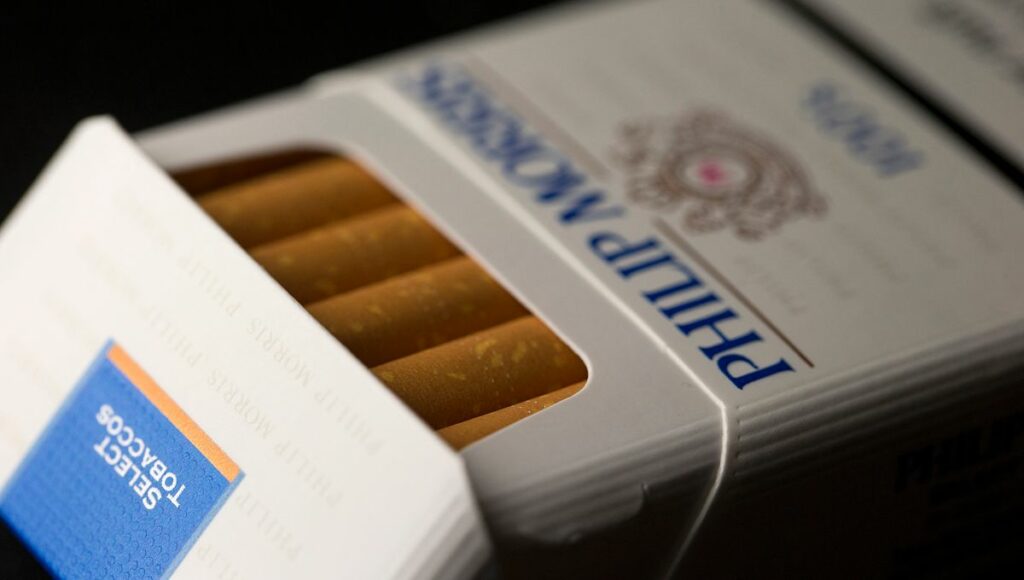In a new report published on May 12, the World Health Organization denounces the « greenwashing » of major tobacco companies which, despite their harmful impact on the environment, manage to climb the rankings rewarding « green » companies.

In a report published Thursday, a few days before World No Tobacco Day, the World Health Organization warns, in a report, of the harmful effects of tobacco on the environment and the « greenwashing » of major tobacco companies. From deforestation to water consumption, the report dismantles point by point the speeches of large companies which, according to the WHO, want to believe that they are leaders in the fight for the climate. They count, for that, on their places in rankings which reward the climate actions of large companies. Pure « greenwashing » for the WHO.
15 million Olympic pools of water every year
« If we know today the dangers of tobacco on health, the ecological impact of the tobacco industry is on the other hand very little mentioned », deplores the report, which explains that throughout its production process and until the moment when it is going to be thrown in a trash can or in the street, the cigarette impacts the planet. Every year, 32 million tons of tobacco leaves are grown to produce approximately six billion cigarettes. Scientific studies have shown that this production rejects 80 million tons of CO2, and consumes 22 billion cubic meters of water, most often in countries that already lack it. This is the equivalent of 15 million Olympic swimming pools.
Scientific studies have shown that the production of a single cigarette releases 14 grams of CO2 into the atmosphere.
Tobacco cultivation is also a direct cause of deforestation. Studies estimate that 1.5 million hectares of forests (mainly tropical) have been destroyed since the 1970swhich has contributed to a 20% increase in annual greenhouse gas emissions.
The WHO also returns to tobacco derivatives increasingly sold todayespecially electronic cigarettes. « Not content with making consumers addicted to nicotine, the tobacco industry’s products will also create a new ecological crisis », from mining for battery components to manufacturing plastics, not to mention using electricity to keep electronics running.
Misinformation to the public and the media
The report restores the definition of « greenwashing », added to the Oxford English dictionary more than twenty years ago, speaking of a “misinformation disseminated by an organization to present an eco-responsible image”. A concept used by the most polluting and controversial companies, including tobacco companies. « The tobacco industry is trying to restore its image through beach cleaning operations or by creating disaster relief associations (in the case of fires, for example). »
In recent years, while the tobacco industry is struggling to restore its image, the WHO has observed an increase in greenwashing. « For example, Phillip Morris spent over US$13 million between 2014 and 2020 to fund ‘environmental projects’ and pseudo-corporate social responsibility (CSR) around the world ». Money spent mainly in Asia, Latin America and Europe. On the other hand, very little funding has been made in African countries, those « which yet need the most help and where many tobacco crops are located ».
Finally, the WHO demonstrates in its report that despite the certain environmental impact of tobacco production, the major tobacco companies manage to rise in certain rankings which reward the most « green » companies. The WHO takes an example in its report: that of the tobacco company British American Tobacco, which in 2021 celebrated its twentieth year of nomination in the Dow Jones Global Sustainability Index (DJSI), which values sustainable business practices. A new celebrated and shared in a video… « on a yacht in the middle of crystal blue water » .
« The message the company is sending to media, policy makers and analysts is simple: that of a company globally recognized for its commitment to people and the planet. » Still according to the WHO Other tobacco companies share the same discourse, such as Philip Morris International, when in reality it is quite the opposite. Rankings that serve their greenwashing.

